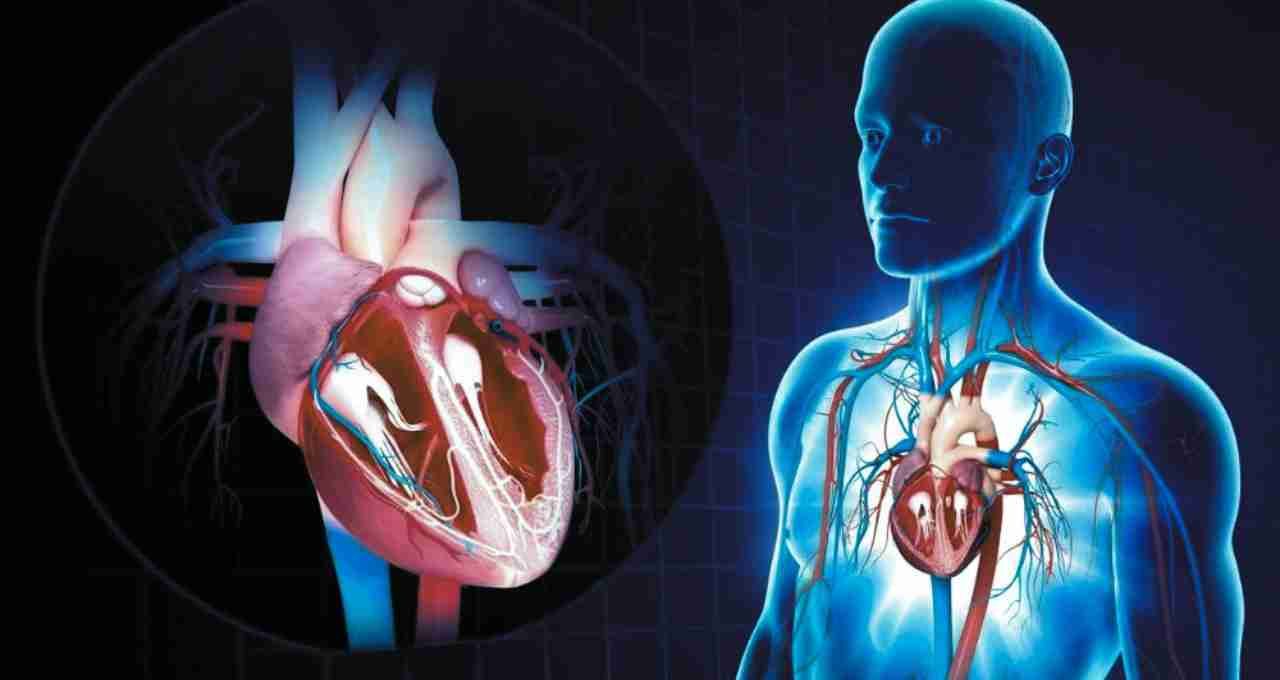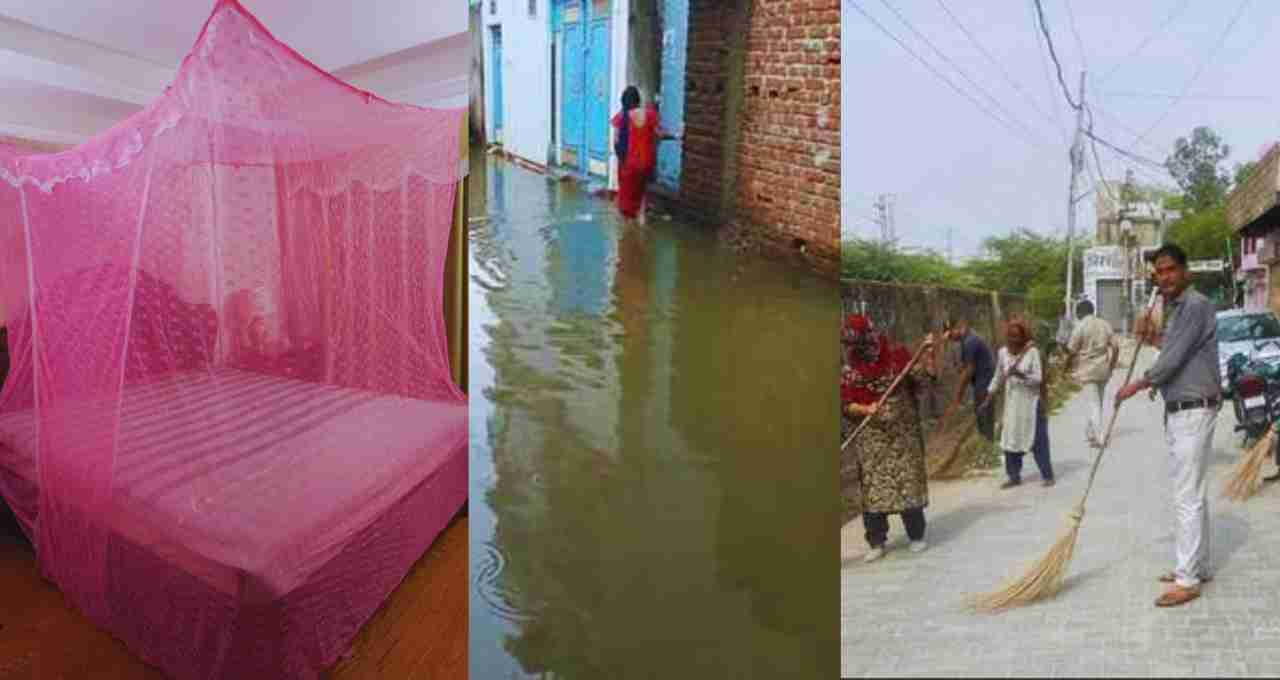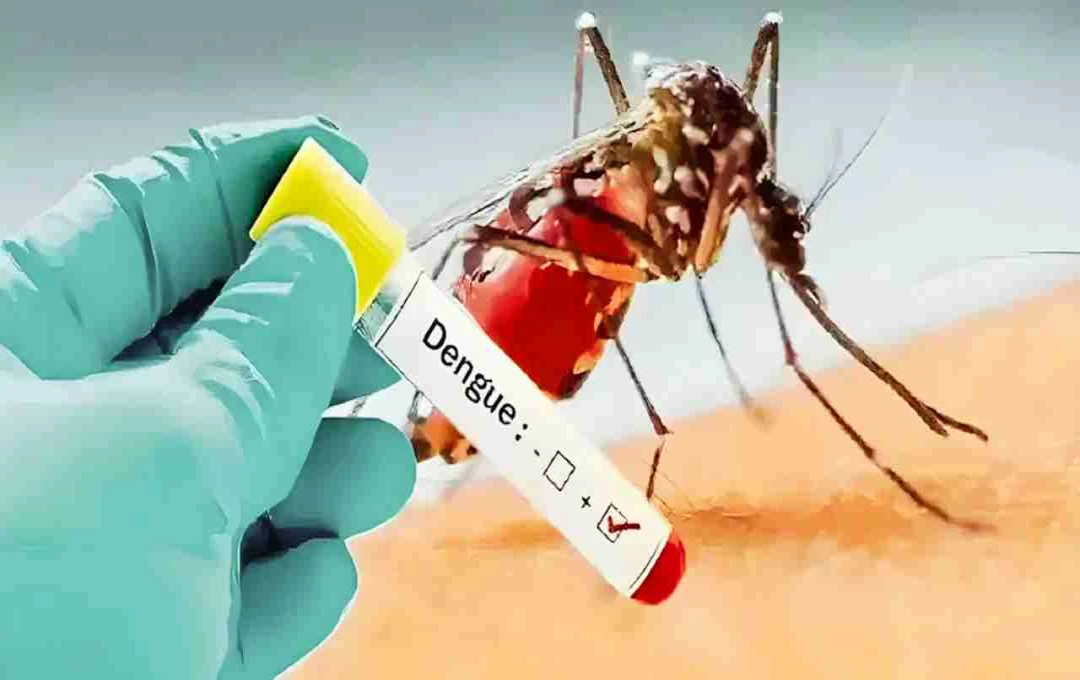Dengue fever spreads rapidly during the summer and monsoon seasons each year, affecting millions. This mosquito-borne illness can become severe without timely treatment. Understanding dengue prevention and symptoms is crucial. National Dengue Day is observed across India on May 16th, with this year's theme being — 'Act Fast, Stop Dengue: Clean Environment, Healthy Life.' This article will discuss the duration of dengue fever, the body parts most affected, and common symptoms.
How Long Does Dengue Fever Last?
The most common and initial symptom of dengue is a high fever. This fever appears suddenly and typically lasts 2 to 7 days. In some cases, it may persist for up to 10 days. Patients experience intense chills, body tremors, and sometimes sweating. Dengue also causes severe muscle and joint pain, hence its nickname, 'breakbone fever'.
The high fever indicates the body's fight against the disease. If treatment is delayed, severe symptoms like thrombocytopenia (low platelet count) and bleeding problems may emerge even after the fever subsides. Therefore, don't ignore dengue fever; consult a doctor immediately for timely and appropriate treatment to ensure a quick recovery.
Which Organs Are Most Affected by Dengue?
The dengue virus primarily affects the body's circulatory system and the heart. Dengue infection drastically reduces the number of blood platelets. Platelets aid in blood clotting, preventing bleeding. Low platelet counts increase the risk of bleeding, one of dengue's most dangerous symptoms.
The impact on the heart can be severe. The disease can cause irregular heartbeat and increase the risk of heart attack. Furthermore, the liver and kidneys are also affected. These organs filter toxins and purify blood. Dengue can impair their function, leading to serious complications.

Without timely treatment, dengue can lead to life-threatening conditions like dengue hemorrhagic fever (DHF) and dengue shock syndrome (DSS). Both involve severe bleeding and organ failure. Therefore, immediate medical attention is crucial upon noticing dengue symptoms to initiate timely treatment and prevent life-threatening risks.
What Are the Common Symptoms of Dengue?
Dengue is a severe viral disease primarily transmitted through the bite of the Aedes mosquito. It is more prevalent during summer and monsoon seasons. Dengue symptoms differ from common cold or viral fever, making early recognition crucial. Let's understand common symptoms aiding in early detection:
- High Fever: The primary symptom is a sudden high fever, reaching 102 to 104 degrees Fahrenheit. It can last two to seven days, sometimes up to ten. Chills and tremors often accompany the fever.
- Headache: Intense headaches, particularly behind the eyes and forehead, are common. The pain can be severe, hindering concentration. Eye pain may also occur.
- Muscle and Joint Pain: Dengue is called 'breakbone fever' due to severe pain in bones, muscles, and joints. This pain affects the back, limbs, and entire body, causing significant discomfort.
- Nausea and Vomiting: Nausea and vomiting are frequent complaints. Stomach upset, loss of appetite, and repeated vomiting are common, worsening weakness.
- Skin Rash: Small red spots or rashes appear on the skin a few days after infection. They usually manifest on the chest, back, and limbs. The rash may be itchy.
- Itching: Itching is a common symptom. It sometimes accompanies the rash and can be bothersome.
- Fatigue and Weakness: Extreme fatigue and weakness are common, hindering daily activities. This weakness might persist after the fever subsides.
Dengue Prevention Measures
Mosquitoes are the primary cause of dengue. Protection from mosquitoes is essential for prevention. Simple precautions can help prevent dengue. Here are some essential methods to protect yourself and your family:
- Maintain Cleanliness: Mosquitoes thrive in unsanitary conditions, especially stagnant water. Keep your surroundings clean, including rooftops, gutters, drains, and areas with standing water. Repair leaky taps and prevent water accumulation. Mosquito larvae multiply rapidly in stagnant water.
- Use Mosquito Nets and Repellents: Use mosquito nets while sleeping. Employ indoor mosquito repellents like sprays, coils, or electric machines to deter mosquitoes and reduce dengue risk.
- Wear Long Sleeves and Pants: Wear long-sleeved shirts and full-length pants, especially during mornings and evenings. This prevents mosquito bites. Light-colored clothing is preferable, as mosquitoes are attracted to darker colors.
- Participate in Cleanliness Drives: Government and local authorities often organize cleanliness drives for mosquito control. Participate to maintain a clean environment and raise awareness about dengue prevention.
- Prevent Outdoor Water Accumulation: Exercise extra caution during the rainy season. Avoid water accumulation in containers, tires, old buckets, pots, and vases. If removal is impossible, add mosquito repellent or oil to kill larvae.
- Live in a Clean Environment: Maintain cleanliness inside and around your home. Dirt and damp areas breed mosquitoes. Regular cleaning minimizes mosquito problems.

What to Do During Dengue
Dengue requires timely treatment and care. These precautions aid in faster recovery and prevent complications:
- Fever Reducing Medications: Take paracetamol to reduce fever. Avoid aspirin or ibuprofen without a doctor's prescription. These are blood thinners and increase bleeding risk, which is dangerous with dengue.
- Stay Hydrated: Drink plenty of water to prevent dehydration. Coconut water, fresh fruit juices, and soups also help maintain hydration and reduce weakness.
- Rest: Rest completely to allow the body to recover. Avoid strenuous activities and stress.
- Regular Blood Tests: Monitor platelet count through regular blood tests as advised by your doctor.
- Follow Medical Advice: Adhere strictly to the doctor's treatment plan. Do not alter or discontinue medication without consultation. Maintain regular contact with your doctor.
- Maintain a Healthy Diet: Eat light, nutritious food. Avoid fried and heavy foods. Increase fruit and vegetable intake for essential nutrients and immunity boost.
Why is Timely Treatment of Dengue Crucial?
Timely treatment is essential because untreated dengue can become severe and life-threatening. Initial symptoms (fever, headache, body ache) are often ignored. Delayed treatment reduces platelet count, causing bleeding and organ weakness. This can affect vital organs like the heart, liver, and kidneys, posing a life-threatening risk.

On National Dengue Day, it is crucial to emphasize hygiene and eliminate mosquito breeding grounds. Removing stagnant water, managing waste, and using mosquito nets are essential. These precautions protect families and communities. Awareness and timely treatment help combat dengue.
Dengue is a dangerous but controllable disease. Awareness, timely treatment, and mosquito prevention are key weapons. Seek immediate medical attention if you experience high fever, headache, body ache, or rash. Maintain cleanliness to reduce the risk. Remember, prompt action and cleanliness are crucial for dengue prevention and a healthy life.














